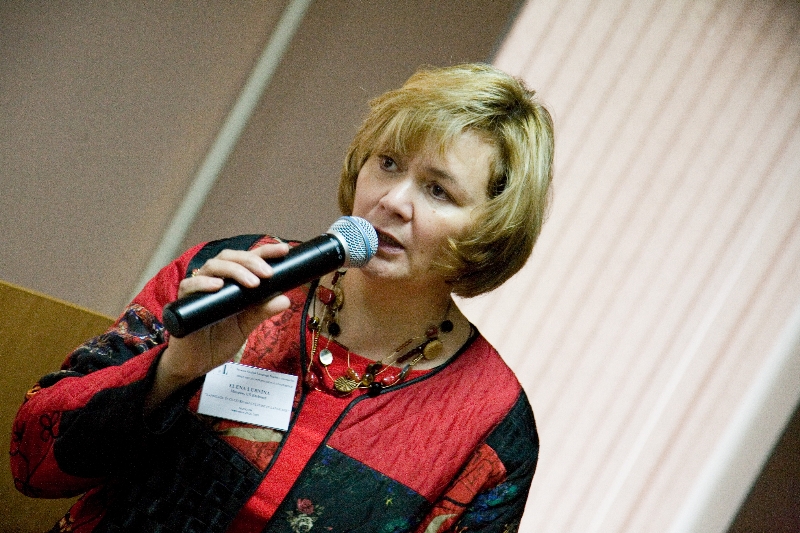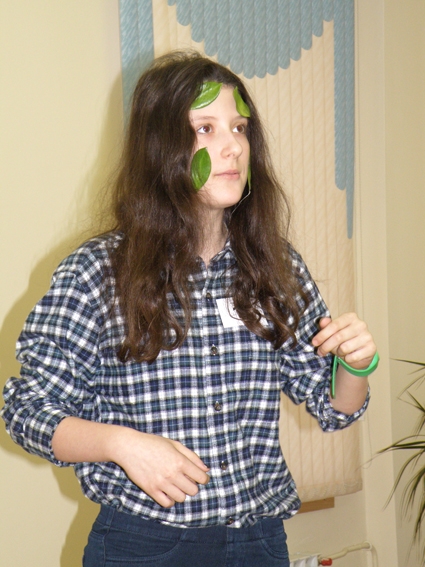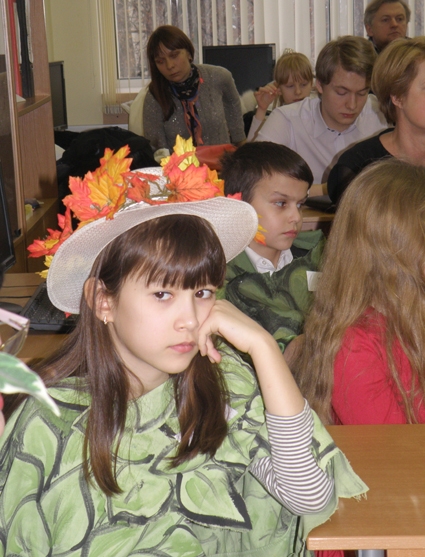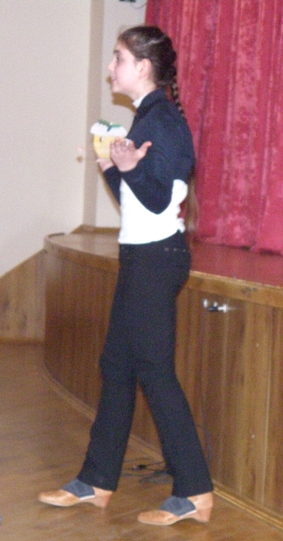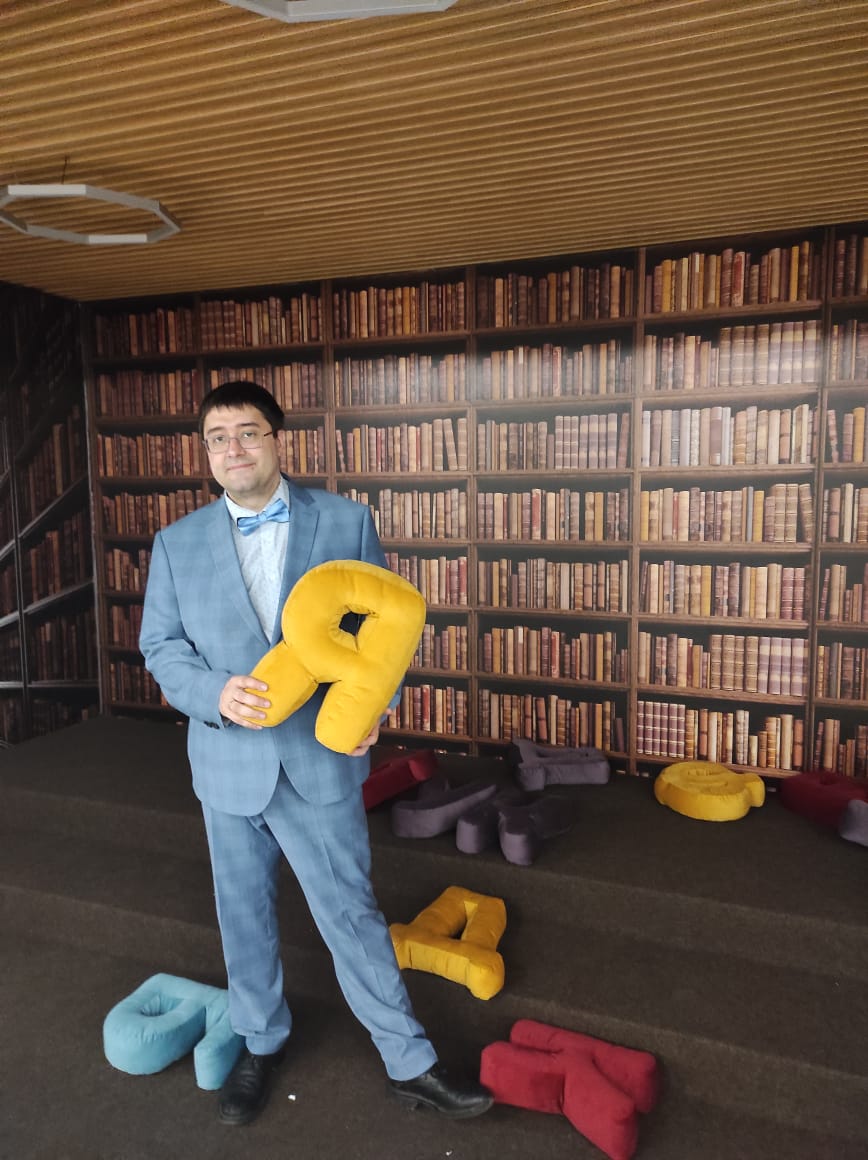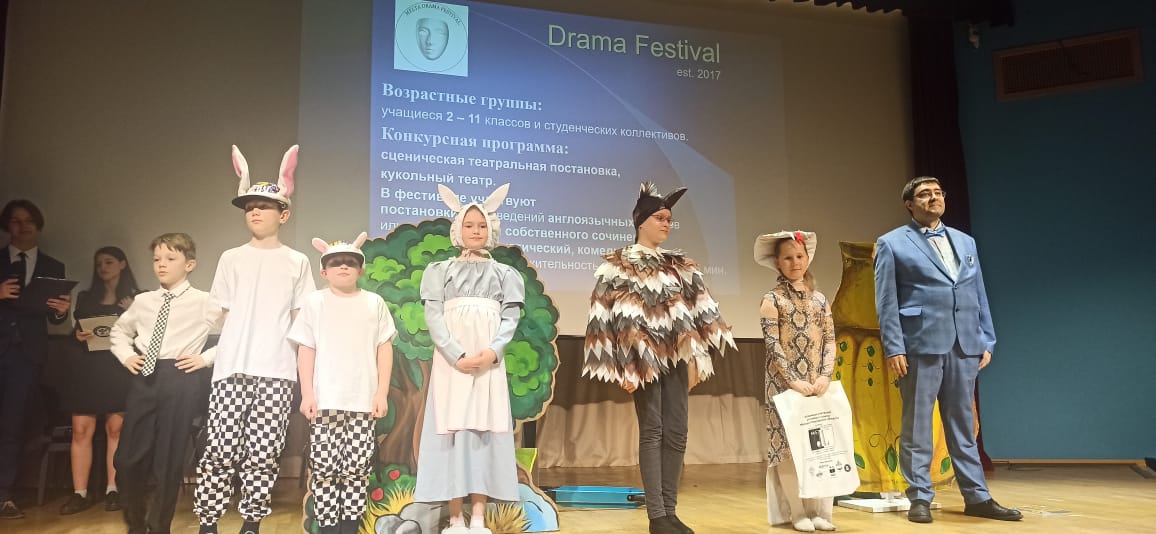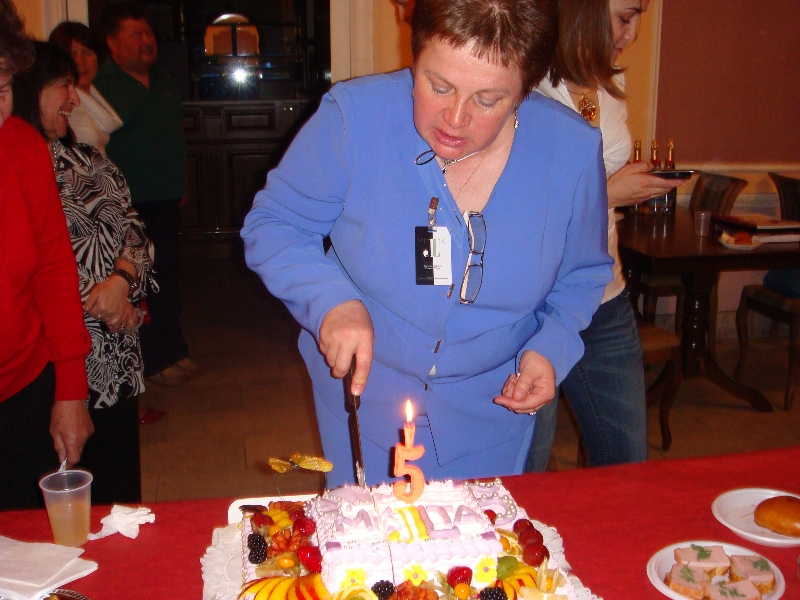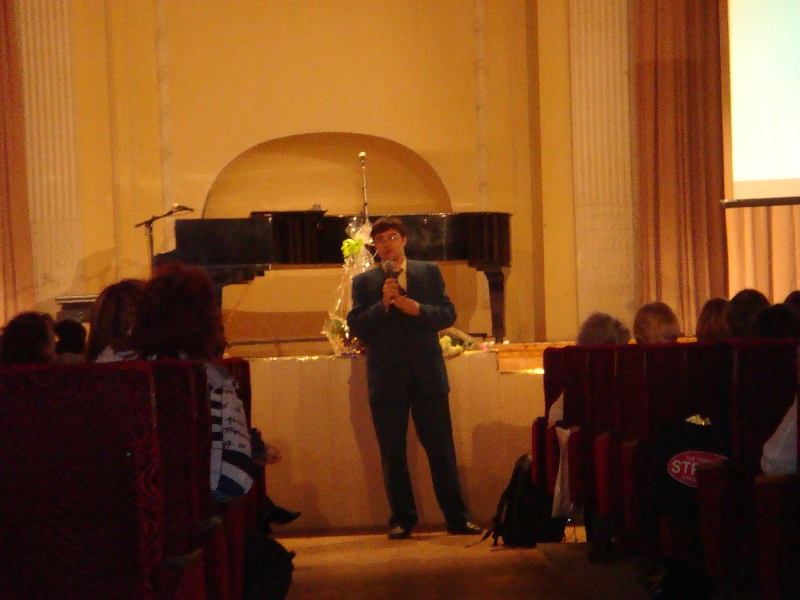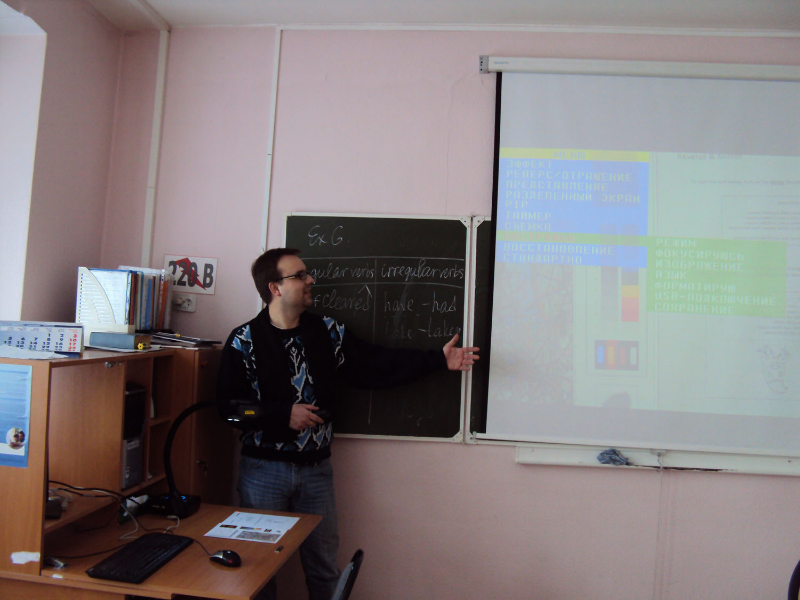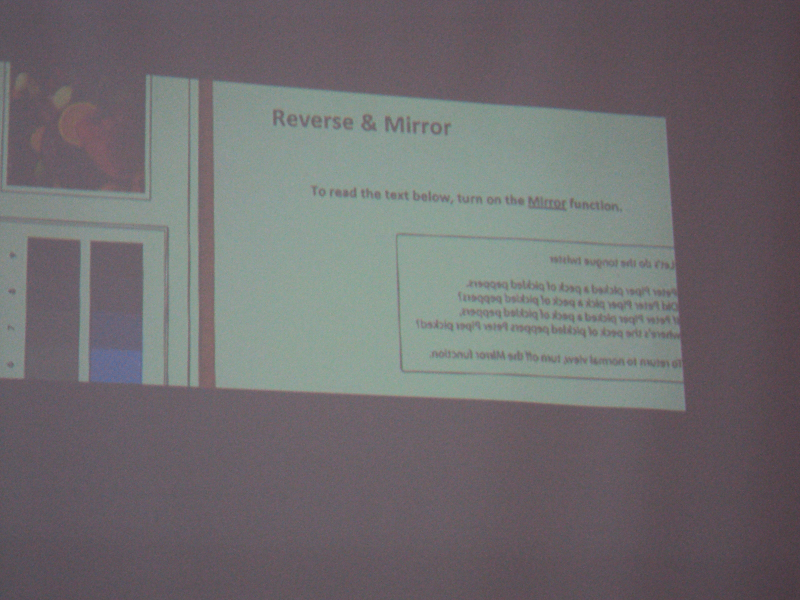Апр
7
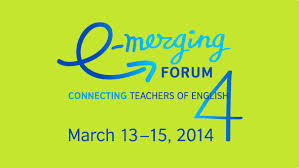 E-merging Forum-4 in Moscow was already 3 weeks ago. And though time flies really fast and new events are coming up our way overshadowing past events, it’s always nice to look back at some of the best moments and re-live them once again. Below are the reviews of the E-merging Forum kindly provided by some of the participants and delegates. I hope you will enjoy the reading and remembering your experience at the Forum. I also hope that those teachers and educators who couldn’t make it to the Forum-4, will get their appetite whetted and will do their best to come to the E-merging Forum-5 next year!
E-merging Forum-4 in Moscow was already 3 weeks ago. And though time flies really fast and new events are coming up our way overshadowing past events, it’s always nice to look back at some of the best moments and re-live them once again. Below are the reviews of the E-merging Forum kindly provided by some of the participants and delegates. I hope you will enjoy the reading and remembering your experience at the Forum. I also hope that those teachers and educators who couldn’t make it to the Forum-4, will get their appetite whetted and will do their best to come to the E-merging Forum-5 next year!
Alexandra Chistyakova, Moscow State University, Moscow
#1
It was my third attendance of this event. I’m full of positive emotions and impressions. I’m really glad that we had a great opportunity to listen to wonderful presentations, talk with foreign teachers. There were a lot of wonderful workshops where all the teachers could touch upon different problems in teaching, share their ideas and discuss topics. I really appreciate the presentations made by specific groups (Learning Technologies, Culture and Literature and others). At every conference they become better and better! It’ll be really wonderful to attend E-merging-5!
Alesya Gariyan, Moscow State University, Moscow
#2
I'd like to share with you a fun and thought-provoking forum I attended last week. It was E-merging Forum 4 and was organised by the British Council. It was a three-day affair which consisted of 5 plenary sessions and discussion group activities.
The first day began with an interesting session led by author Alan Pulverness, who talked about the reintroduction of literature into the classroom and how teachers might incorporate it into their lessons. The second part of the day centered on teaching young learners and how language develops together with the importance of 'motherese' — the language mothers use when communicating with their babies. The presenter, Catherine Kneafsey, then showed us how play, singing and even dance help in the development of language in children. We had great fun discussing the ideas and felt just like children at play ourselves.
Day two comprised two sessions as well. The first was a fascinating exploration of test development based on the CEFR and was ably presented by James Dunlea. The second was given by Tony Prince and was an equally absorbing discussion about EAP and the challenges of task response/design.
The final day kicked off with learning technologies and digital literacies that is applying technology in language classrooms- something which I have to admit had previously frightened the life out of me and if I am honest, still does to a certain extent. This session was presented by Nicky Hockley who did her level best to comfort us poor technophobes. The three days finished with presentations from our discussion groups on what we had learned from the various sessions.
A very inspiring and stimulating conference! An opportunity to share your ideas with keen and creative colleagues in a positive and open environment. Lots of informal discussions. Plenty of food for thought. At the end of it all I felt a bit drained but definitely better informed and I made some new friends too!
Olga Golub, Moscow State Linguistic University, Moscow
#3
What is the day you are looking forward to for the whole year? Is it your birthday? Is it New Year? If you are an EFL teacher, then the answer is — the Emerging Forum organized by the British Council. Now as Emerging Forum 4 has come to an end, I can say that for me both as an attendee and a speaker it was an incredible event to meet colleagues from all over the ELT WORLD; a chance to enjoy snappy presentations illustrating fresh new projects, practices and techniques; a unique opportunity to listen in, respond and share my own experience in classroom technology usage, diverse learning styles and motivation.
If you are tired of your chores and looking for inspiration, the Emerging Forum is just the place for you to go and find numerous ways to shake up your teaching! See you there next year!
Anastasia Fetisova, Institute of Foreign Languages at Moscow City Pedagogical, Moscow
#4
It's always a great pleasure to participate in the E-merging Forum. It is the annual event that unites teachers worldwide giving them the opportunities to co-operate, meet new colleagues and share their teaching experience. It was the third Forum for me and I hope this wonderful tradition will continue. I'd like to thank the British Council for organising this great event and I'm sure all participants will remember it for a long time.
Mikhail Mamaev, assistant dean, Moscow Region State University, Moscow
#5
E-merging forum 4, the second one for me, gave everything you might want to get from a teacher's conference: meeting up with colleagues, sharing ideas and having a lit of fun. Although there were many events worth mentioning, let me just list a few I visited: surprisingly interesting Sharon Hannigan's presentation on metacognitive awareness research; Simon Brooks' stimulating literary workshop; Vera Zabotkina's talk on key aspects of successful academic writing, and Svetlana Zhavoronkova's intriguing talk on Sociocultural Theory of Language Acquisition. The most difficult challenge all the participants faced was choosing between several equally appealing events taking place in parallel sessions.
Dmitry Tolstykh, freelance teacher of English, Moscow
#6
Having attended and presented at three of four E-merging Forums in a row, I can safely say that I have some good experience to rely on when giving a comment on this one. This year’s event has surprised me in several ways. I’d like to share my view on three aspects I’ve paid attention to: the programme, the tech side and the audience. I haven’t attended many sessions this year (and this is actually one of the rules I follow while going on conferences – skipping a presentation or two during the day is a must to feel good, remain energetic and process the information). From what I’ve seen I can highlight the presentation in the Literature section by Elizabeth Bogdanova on going up-to-date with literature in the class, and what could be seen as a literary text nowadays. I liked the fact that the programme was balanced and included various formats, as well as brand new ones (such as a panel discussion, for example). Unfortunately, fewer sessions were covered by bloggers of the forum this year, but I would really like to thank Jane and Elena of the LT strand for doing an impressive job summarizing all the presentations the section. I thought it was a great thing to do for those who didn’t get to attend them all. I noticed that there were fewer teachers tweeting this year, but more teachers sharing photos of the forum on Instagram, even if wi-fi connection in the place was not particularly stable or good. Finally, the most exciting observation for me was that the forum was attended by SO MANY young teachers, and even students (would-be teachers)! This was an eye-opener and such a pleasant surprise to find out that they know about the event, care to come and learn, then talk about this experience, get inspired by sessions and discuss projects and initiatives in the breaks (I did some eavesdropping, accidentally). This, to me, looks a very positive sign for ELT in our country, and I hope next forums will attract even more teachers, both young and experienced, and, most importantly, will provide quality content for us!
Anna Loseva, Moscow State Univeristy, Moscow
